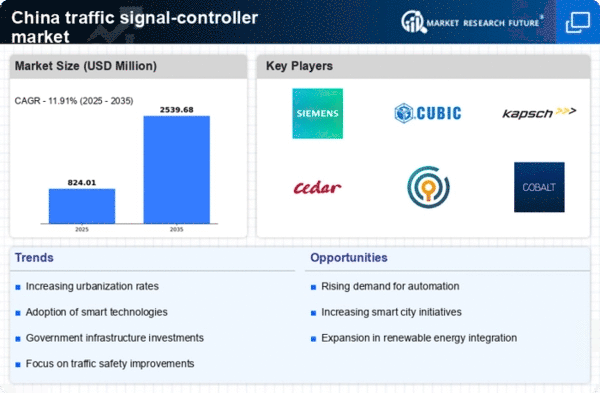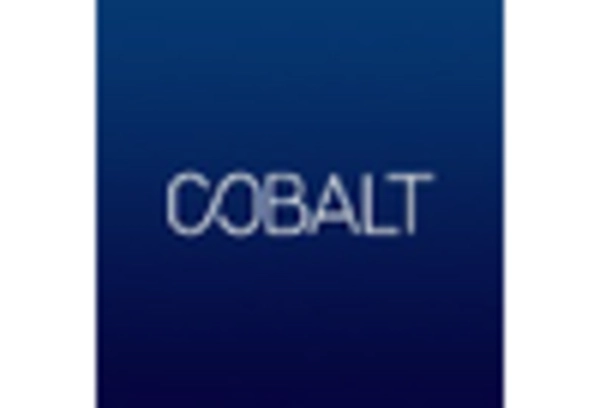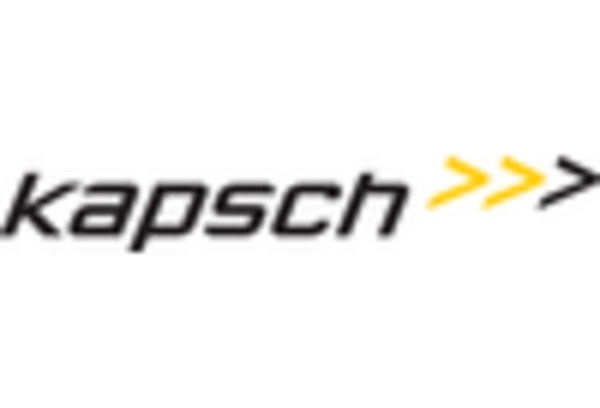Public Safety Concerns
Public safety concerns are a significant driver for the traffic signal-controller market in China. With increasing road traffic accidents, there is a growing emphasis on improving traffic management systems to enhance safety. The traffic signal-controller market is responding to this demand by developing systems that prioritize pedestrian safety and reduce accident rates at intersections. In 2025, it is projected that cities will invest heavily in upgrading their traffic signal infrastructure to incorporate features such as pedestrian countdown timers and vehicle detection systems. These enhancements not only aim to protect vulnerable road users but also contribute to the overall efficiency of traffic flow. As safety becomes a paramount concern, the traffic signal-controller market is likely to experience robust growth.
Urbanization and Traffic Congestion
The rapid urbanization in China is a primary driver for the traffic signal-controller market. As cities expand, the population density increases, leading to heightened traffic congestion. In 2025, urban areas in China are projected to house over 60% of the population, intensifying the need for efficient traffic management systems. Traffic signal controllers play a crucial role in alleviating congestion by optimizing traffic flow and reducing wait times at intersections. The traffic signal-controller market is expected to grow as municipalities invest in advanced systems to manage the increasing vehicle numbers. Furthermore, the integration of real-time data analytics into traffic signal systems can enhance their effectiveness, making them indispensable in urban planning and traffic management strategies.
Government Regulations and Standards
Government regulations in China are significantly influencing the traffic signal-controller market. The Ministry of Transport has established stringent standards for traffic management systems to improve road safety and efficiency. Compliance with these regulations is essential for manufacturers and service providers in the traffic signal-controller market. As of 2025, the government is expected to enforce new guidelines that mandate the use of smart traffic signal systems in major cities. This regulatory push is likely to drive investments in modern traffic signal technologies, fostering innovation and competition among market players. Consequently, adherence to these regulations not only enhances safety but also propels the growth of the traffic signal-controller market.
Investment in Smart City Initiatives
Investment in smart city initiatives is driving the traffic signal-controller market in China. The government is actively promoting the development of smart cities, which integrate advanced technologies to improve urban living. As part of these initiatives, traffic signal controllers are being upgraded to incorporate smart technologies that facilitate better traffic management. By 2025, it is expected that a significant portion of urban infrastructure budgets will be allocated to smart traffic solutions. This investment is likely to enhance the functionality of traffic signal controllers, enabling features such as remote monitoring and data analytics. Consequently, the traffic signal-controller market is poised for growth as cities embrace smart technologies to create more efficient and sustainable urban environments.
Technological Advancements in Traffic Management
Technological advancements are reshaping the traffic signal-controller market in China. Innovations such as adaptive traffic signal control systems, which adjust signal timings based on real-time traffic conditions, are gaining traction. By 2025, it is anticipated that these systems will account for a substantial share of the market, driven by their ability to reduce congestion and improve traffic flow. Additionally, the integration of artificial intelligence and machine learning into traffic signal controllers is expected to enhance decision-making processes. These technologies can analyze traffic patterns and predict congestion, leading to more efficient traffic management. As cities strive for smarter infrastructure, the demand for advanced traffic signal controllers is likely to surge.
















